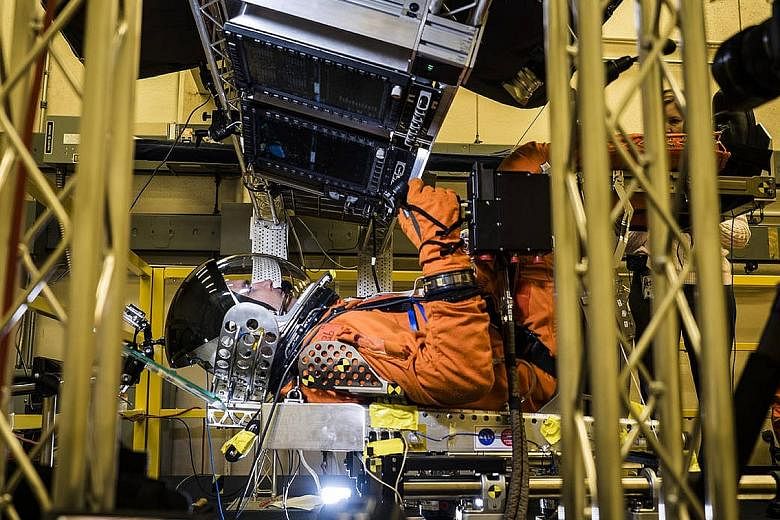NEW YORK • In the first public inkling of the Trump administration's aspirations for space exploration, the National Aeronautics and Space Administration (Nasa) has said that it wants to consider taking astronauts on the first flight of its new heavy-lift rocket. This could speed up a return to the moon.
Acting Nasa administrator Robert Lightfoot Jr said on Wednesday the agency was studying what it would take to add a crew to the first flight of the Space Launch System, a mammoth rocket under development for deep-space missions.
Under current plans, the first launch was scheduled for late next year and did not include a crew for testing the systems aboard the rocket and the capsule, named Orion.
That would have been followed by a gap of several years before a second flight, with astronauts, that would have taken off no earlier than 2021.
Mr Lightfoot spoke at a conference for companies working on the Space Launch System and Orion programmes. Boeing is the main contractor for the rocket; Lockheed Martin is building Orion. Mr Lightfoot also sent a memo to Nasa employees.
"I know the challenges associated with such a proposition, like reviewing the technical feasibility, additional resources needed, and clearly the extra work would require a different launch date," Mr Lightfoot wrote. "That said, I also want to hear about the opportunities it could present to accelerate the effort of the first crewed flight and what it would take to accomplish that first step of pushing humans farther into space."
Under the current plans for the first launch, a crewless Orion capsule would spend three weeks in space, flying to the moon and entering an orbit about 64,000km above the surface. With astronauts on board, the mission would most likely be shorter.
Mr Lightfoot also wrote: "From my interactions with the transition team, Nasa is clearly a priority for the President and his administration."
NYTIMES

